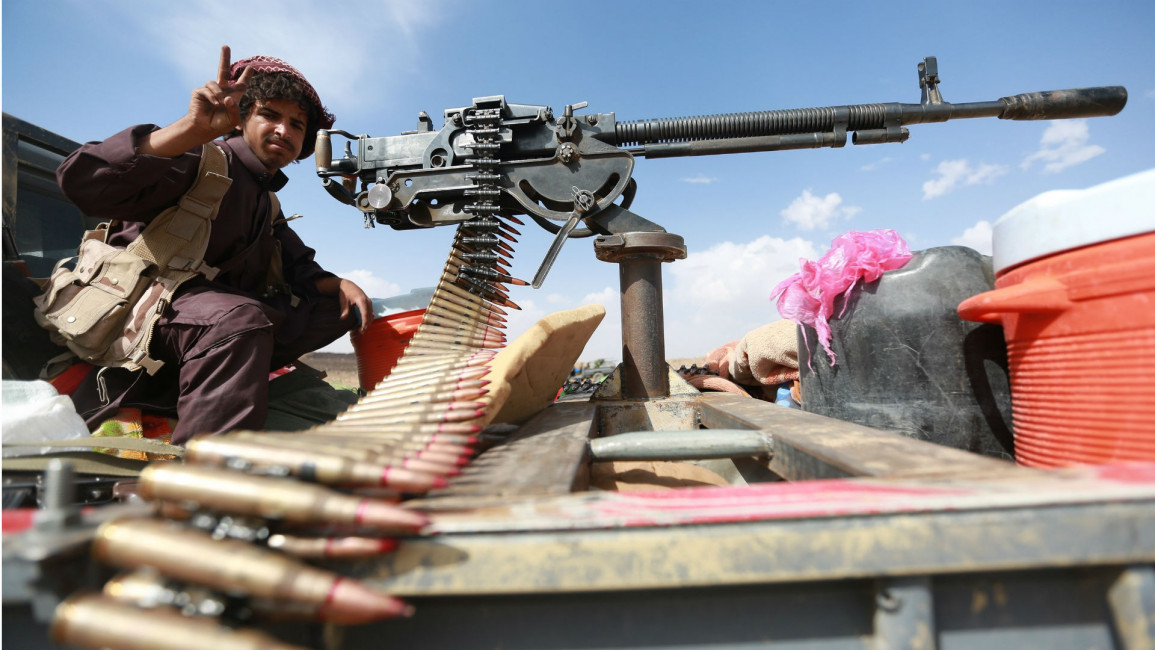Houthis head east to offset losses in Yemen's south
Developments in Yemen over the past few days have further pushed the Houthis to expand east in order to offset their recent growing losses in the south of the country.
Sources speaking on condition of anonymity told al-Araby al-Jadeed that the Houthis and their ally, former president Ali Abdullah Saleh, had sought to advance to the eastern province of Hadhramaut through the frontlines of Marib and Shabwa.
The sources added that some Marib frontlines were almost taken over in the past few days due to some tribal leaders' collusion with the Houthis. However, the attempt to take over the province failed as a result of rigorous resistance, in coordination with the Saudi-led coalition, which intensified its airstrikes on Marib in the past few days.
In the southern province of Shabwa, adjacent to Marib, Houthi and pro-Saleh forces advanced up to the district of al-Said, in coordination with local leaders. Yemeni army units still loyal to President Abd-Rabbo Mansour Hadi, who is in exile in the Saudi capital Riyadh, were accused of aiding the Houthi-Saleh forces in Shabwa. However, their command denied the accusations, describing them as “lies and rumours” and confirming that they would counter any movements towards Hadhramaut made from any direction.
Located west of Hadhramaut, Shabwa is an important oil-producing province, and has been known in the past few years for having an active al-Qaeda presence.
Despite the Saudi-led airstrikes, which began on March 26, pro-Saleh forces were able to seize the capital of the province, Ataq. This was followed by clashes involving local anti-Houthi/Saleh units, known as the 'Popular Resistance', during which the provincial governor Ahmed Bahaj was killed.
In addition to the importance of Shabwa itself, the province also acts as a gate to Hadhramaut, Yemen's largest province, which constitutes nearly one third of the country's total area, although it is one of the least populated provinces.
Hadhramaut has held a particular importance since the beginning of the coalition's airstrikes, as two of Yemen's seven military zones are located in the province. The second military zone, headquarted in Hadhramaut's capital, Mukalla, was destroyed as al-Qaeda took over the city.
According to analysts, the Houthi-Saleh alliance may seek to expand into Hadhramaut by benefiting from al-Qaeda's presence and control of Mukalla. If they are able to control it, then they would come closer to the only land borders with the neutral Oman.
In the south, pro-Saleh and Houthi forces have withdrawn significantly over the past few days, as the Popular Resistance advanced in several areas, particularly in Dhalea and Aden. Meanwhile, anti-Houthi airstrikes and attrition attacks are expected to increase in the coming period.
Most Popular Resistance forces in the south are secessionists, and are fighting under the flag of the former South Yemen, which merged with the North in 1990.
Popular Resistance forces in Taiz, the closest northern province to the south, complain about a shortage of supplies, and accuse pro-Hadi figures of ignoring their demands for weapons from the coalition's member states.
The coalition has already dropped weapons shipments to support the Popular Resistance, but there has been some criticism of this, as some believe that the weapons may be seized by others, and that new armed groups may emerge.



